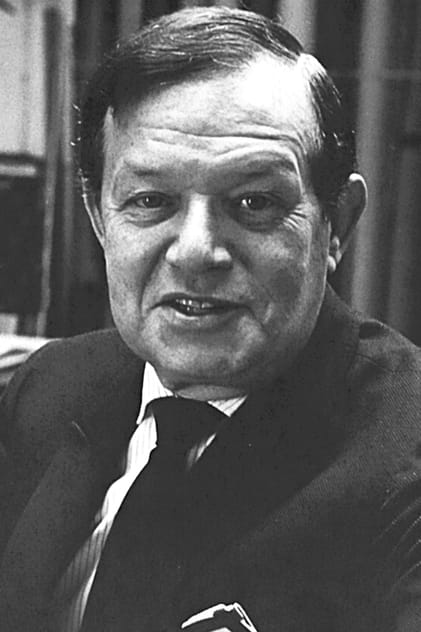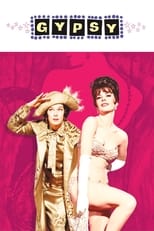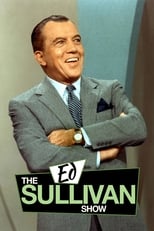

Jule Styne
Born: December 31, 1905
Died: September 20, 1994
in London, England
Died: September 20, 1994
in London, England
From Wikipedia, the free encyclopedia
Jule Styne (/ˈdʒuːli staɪn/; December 31, 1905 – September 20, 1994) was a British-American song writer and composer known for a series of Broadway musicals, which include several famous and frequently revived shows.
Styne was born to a Jewish family in London, England as Julius Kerwin Stein to immigrants from Ukraine, the Russian Empire who ran a small grocery. At the age of eight, he moved with his family to Chicago, where at an early age he began taking piano lessons. He proved to be a prodigy and performed with the Chicago, St. Louis, and Detroit Symphonies before he was ten years old.
Styne attended Chicago Musical College, but before then, he had already attracted attention of another teenager, Mike Todd, later a successful film producer, who commissioned him to write a song for a musical act that he was creating. It was the first of over 1,500 published songs Styne composed in his career. His first hit, "Sunday", was written in 1926. In 1929, Styne was playing with the Ben Pollack band.
Styne was a vocal coach for 20th Century Fox, until Darryl F. Zanuck fired him because vocal coaching was "a luxury, and we're cutting out those luxuries", and told him he should write songs, because "that's forever". Styne established his own dance band, which brought him to the notice of Hollywood, where he was championed by Frank Sinatra and where he began a collaboration with lyricist Sammy Cahn. He and Cahn wrote many songs for the movies, including "It's Been a Long, Long Time", "Five Minutes More," and the Oscar-winning title song for Three Coins in the Fountain (1954). He collaborated on the score for the 1955 musical film My Sister Eileen with Leo Robin. Ten of his songs were nominated for the Oscar, many written with Cahn, including "I've Heard That Song Before" (#1 for 13 weeks for Harry James and His Orchestra in 1943), "I'll Walk Alone", "It's Magic" (a #2 hit for Doris Day in 1948), and "I Fall in Love Too Easily".
In 1947, Styne wrote his first score for a Broadway musical, High Button Shoes, with Cahn, and over the next several decades wrote the scores for many Broadway shows, most notably Gentlemen Prefer Blondes, Peter Pan (additional music), Bells Are Ringing, Gypsy, Do Re Mi, Funny Girl, Sugar, and the Tony-winning Hallelujah, Baby!.
His collaborators included Sammy Cahn, Leo Robin, Betty Comden and Adolph Green, Stephen Sondheim, and Bob Merrill.
Styne died of heart failure in New York City at the age of 88. His archive - including original hand-written compositions, letters, and production materials - is housed at the Harry Ransom Center.
Styne was elected to the Songwriters Hall of Fame in 1972 and the American Theatre Hall of Fame in 1981, and he was a recipient of a Drama Desk Special Award and the Kennedy Center Honors in 1990. Additionally, Styne won the 1955 Oscar for Best Music, Original Song for "Three Coins in the Fountain", and "Hallelujah, Baby!" won the 1968 Tony Award for Best Original Score.
Jule Styne (/ˈdʒuːli staɪn/; December 31, 1905 – September 20, 1994) was a British-American song writer and composer known for a series of Broadway musicals, which include several famous and frequently revived shows.
Styne was born to a Jewish family in London, England as Julius Kerwin Stein to immigrants from Ukraine, the Russian Empire who ran a small grocery. At the age of eight, he moved with his family to Chicago, where at an early age he began taking piano lessons. He proved to be a prodigy and performed with the Chicago, St. Louis, and Detroit Symphonies before he was ten years old.
Styne attended Chicago Musical College, but before then, he had already attracted attention of another teenager, Mike Todd, later a successful film producer, who commissioned him to write a song for a musical act that he was creating. It was the first of over 1,500 published songs Styne composed in his career. His first hit, "Sunday", was written in 1926. In 1929, Styne was playing with the Ben Pollack band.
Styne was a vocal coach for 20th Century Fox, until Darryl F. Zanuck fired him because vocal coaching was "a luxury, and we're cutting out those luxuries", and told him he should write songs, because "that's forever". Styne established his own dance band, which brought him to the notice of Hollywood, where he was championed by Frank Sinatra and where he began a collaboration with lyricist Sammy Cahn. He and Cahn wrote many songs for the movies, including "It's Been a Long, Long Time", "Five Minutes More," and the Oscar-winning title song for Three Coins in the Fountain (1954). He collaborated on the score for the 1955 musical film My Sister Eileen with Leo Robin. Ten of his songs were nominated for the Oscar, many written with Cahn, including "I've Heard That Song Before" (#1 for 13 weeks for Harry James and His Orchestra in 1943), "I'll Walk Alone", "It's Magic" (a #2 hit for Doris Day in 1948), and "I Fall in Love Too Easily".
In 1947, Styne wrote his first score for a Broadway musical, High Button Shoes, with Cahn, and over the next several decades wrote the scores for many Broadway shows, most notably Gentlemen Prefer Blondes, Peter Pan (additional music), Bells Are Ringing, Gypsy, Do Re Mi, Funny Girl, Sugar, and the Tony-winning Hallelujah, Baby!.
His collaborators included Sammy Cahn, Leo Robin, Betty Comden and Adolph Green, Stephen Sondheim, and Bob Merrill.
Styne died of heart failure in New York City at the age of 88. His archive - including original hand-written compositions, letters, and production materials - is housed at the Harry Ransom Center.
Styne was elected to the Songwriters Hall of Fame in 1972 and the American Theatre Hall of Fame in 1981, and he was a recipient of a Drama Desk Special Award and the Kennedy Center Honors in 1990. Additionally, Styne won the 1955 Oscar for Best Music, Original Song for "Three Coins in the Fountain", and "Hallelujah, Baby!" won the 1968 Tony Award for Best Original Score.
Movies for Jule Styne...

Title: The Kennedy Center Honors
Character: Self
Released: December 28, 1978
Type: TV
The Kennedy Center Honors is an annual honor given to those in the performing arts for their lifetime of contributions to American culture.


Title: Gypsy
Character: Conductor (uncredited)
Released: November 1, 1962
Type: Movie
Mama Rose lives to see her daughter June succeed on Broadway by way of vaudeville. When June marries and leaves, Rose turns her hope and attention to her elder, less obviously talented, daughter Louise. However, having her headlining as a stripper at Minsky's Burlesque is not what she initially has in mind.


Title: The Mike Douglas Show
Character: Self
Released: December 11, 1961
Type: TV
The Mike Douglas Show is an American daytime television talk show hosted by Mike Douglas that originally aired only in the Cleveland area during much of its first two years on the air. It then went into syndication in 1963 and remained on television until 1982. It was distributed by Westinghouse Broadcasting and for much of its run, originated from studios of two of the company's TV stations in Cleveland and Philadelphia.




Title: Tony Awards
Character: Self - Nominee
Released: April 1, 1956
Type: TV
The Antoinette Perry Award for Excellence in Theatre, more commonly known as a Tony Award, recognizes achievement in live Broadway theatre. The awards are presented by the American Theatre Wing and The Broadway League at an annual ceremony in New York City. The awards are given for Broadway productions and performances, and an award is given for regional theatre.


Title: The Ed Sullivan Show
Character: Self - Pianist
Released: June 20, 1948
Type: TV
The Ed Sullivan Show is an American TV variety show that originally ran on CBS from Sunday June 20, 1948 to Sunday June 6, 1971, and was hosted by New York entertainment columnist Ed Sullivan. It was replaced in September 1971 by the CBS Sunday Night Movie, which ran only one season and was eventually replaced by other shows.
In 2002, The Ed Sullivan Show was ranked #15 on TV Guide's 50 Greatest TV Shows of All Time.


Title: The Ed Sullivan Show
Character: Self
Released: June 20, 1948
Type: TV
The Ed Sullivan Show is an American TV variety show that originally ran on CBS from Sunday June 20, 1948 to Sunday June 6, 1971, and was hosted by New York entertainment columnist Ed Sullivan. It was replaced in September 1971 by the CBS Sunday Night Movie, which ran only one season and was eventually replaced by other shows.
In 2002, The Ed Sullivan Show was ranked #15 on TV Guide's 50 Greatest TV Shows of All Time.
